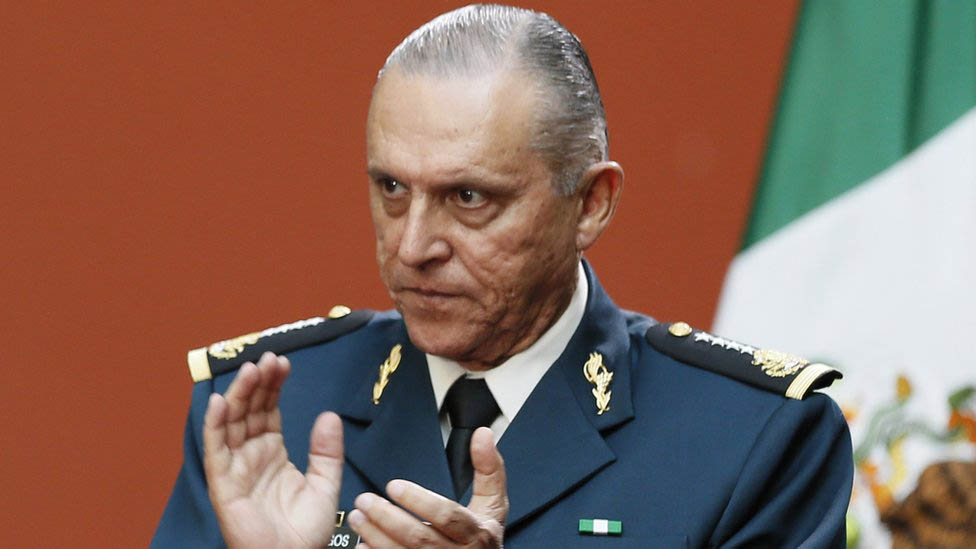MEXICO CITY/WASHINGTON, (Reuters) – U.S. prosecutors will drop drug charges against ex-Mexican Defense Minister Salvador Cienfuegos and turn over the investigation to Mexico, saying “sensitive” foreign policy considerations outweighed the interest in pressing the case.
The surprise decision to dismiss the charges in the politically explosive case was announced in a joint statement yesterday from the U.S. Department of Justice (DOJ) and Mexico’s attorney general’s office.
“The United States has determined that sensitive and important foreign policy considerations outweigh the government’s interest in pursuing the prosecution of the defendant,” prosecutors from the U.S. Eastern District of New York said in a court document unsealed on Tuesday.
U.S. authorities said the 72-year-old ex-general, accused of using his power to protect a faction of the Beltran-Leyva drugs cartel in Mexico while ordering operations against its rivals, had agreed to voluntarily return to Mexico if the U.S. case against him was thrown out.
Cienfuegos, who served as head of the military and was former President Enrique Pena Nieto’s top defense official from 2012 to 2018, pleaded not guilty earlier this month to the drug trafficking and money laundering conspiracy charges following his October arrest in the Los Angeles airport.
After a hearing on Wednesday in a Brooklyn federal court, where the judge is expected to sign off on the prosecutors’ request, Cienfuegos will likely be transported back to Mexico in the custody of a U.S. Marshal, the court documents show.
“Tomorrow justice will be done,” said Edward V. Sapone, Cienfuegos’ U.S.-based attorney in a brief statement.
The arrest of Cienfuegos, who for years worked closely with U.S. counterparts on cross-border criminal matters and was a leading figure in Mexico’s drug war, put a severe strain on security ties between the two countries.
The Mexican government was not forewarned of the investigation or arrest, which angered Mexican sensitivities at the highest level. His arrest shocked Mexico’s security establishment, given his close ties to a range of current senior officials.
In retaliation, Mexican President Andres Manuel Lopez Obrador publicly threatened to review cooperation agreements that establish how U.S. Drug Enforcement Administration (DEA) agents operate in the country.
The threats set off a flurry of frantic calls between U.S. Attorney General Barr, DEA Acting Administrator Timothy Shea, and Mexican officials seeking to calm tensions.
In remarks to reporters shortly after the announcement, Mexican Foreign Minister Marcelo Ebrard described the dropping of the U.S. case as unprecedented and a sign of respect for both Mexican sovereignty as well as the Mexican military.
Ebrard said the decision meant that security cooperation between the two nations could proceed.
The DEA-led case against Cienfuegos appears to have been a tightly guarded secret even among U.S. agencies – with a Pentagon think-tank honoring him for his “extraordinary” contributions to the bilateral military relationship while the investigation was ongoing in 2018.
“If I had to guess, it is likely that the Pentagon was up in arms with the DEA going solo,” said Arturo Sarukhan, a former Mexican ambassador to Washington.
“Forward looking mil-to-mil ties with Mexico, painstakingly developed over the past two decades and so dependent on confidence-building measures, were hanging in the balance.”
Security analysts were pessimistic that Mexican authorities would succeed in proving the crimes Cienfuegos had been accused of in the United States.
Ebrard said the Department of Justice had provided Mexican authorities with evidence in the case and committed to support the investigation led by Mexican authorities.
U.S. prosecutors could not immediately be reached for comment.





